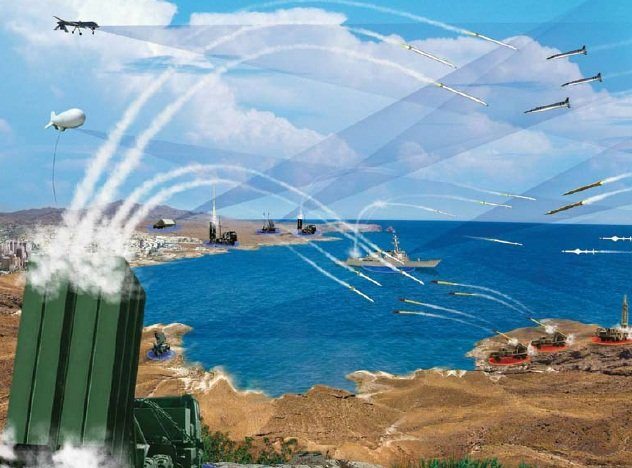The Pentagon said Tuesday it will request funding to expand Israel’s “Iron Dome” short-range air defense system, which helped thwart rocket attacks out of Gaza earlier this month.
The United States spent $204 million on the Iron Dome system in fiscal year 2011 and the Pentagon did not specify what level of funding it would propose to Congress for additional batteries.
“The Department of Defense has been in conversations with the Government of Israel about US support for the acquisition of additional Iron Dome systems and intends to request an appropriate level of funding from Congress to support such acquisitions based on Israeli requirements and production capacity,” press secretary George Little said in a statement.
Three batteries of the sophisticated system performed successfully during a rocket barrage by Gaza militants on the weekend of March 10-11, according to Israeli and US officials.
“When nearly 300 rockets and mortars were fired at southern Israel, Iron Dome intercepted over 80 percent of the targets it engaged, saving many civilian lives,” the Pentagon’s statement said.
The announcement coincides with delicate discussions between Israel and the United States over how to counter Iran’s nuclear program, with leaders disagreeing about the imminence of the threat posed by Tehran.
US officials have warned against a potential Israeli pre-emptive strike on Iran and analysts have predicted Tehran would stage retaliation against Israeli and US targets, with pro-Iranian Hezbollah militants possibly launching rocket attacks on Israel.
Some Republicans in Congress have accused President Barack Obama of failing to show sufficient support to Israel but lawmakers immediately praised the move to fund more batteries for the Iron Dome shield.
“I am pleased that the president now acknowledges the need to increase funding to counter a deadly threat, and I look forward to working together to identify the additional resources necessary to help defend our Israeli friends,” Buck McKeon, a Republican and chairman of the House Armed Services Committee, said in a statement.
The system, the first of its kind in the world, was developed by Israel’s Rafael Advanced Defence Systems with the help of US funding. It is designed to intercept rockets and artillery shells fired from a range of four to 70 kilometres (three to 45 miles).
Each battery comprises detection and tracking radar, state-of-the-art fire control software and three launchers, each with 20 interceptor missiles.










